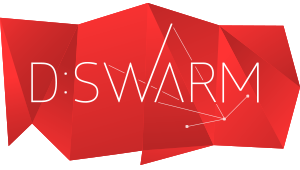Decentralized software development is gaining momentum as blockchain technology continues to disrupt traditional industries. From decentralized finance (DeFi) platforms to decentralized applications (DApps), developers are exploring innovative ways to build peer-to-peer networks and empower users with greater control over their data and assets. However, along with the opportunities come challenges that developers must navigate to realize the full potential of decentralized software. In this article, we’ll explore the key challenges and opportunities in decentralized software development.
Understanding Decentralized Software Development
Decentralized software, often built on blockchain technology, operates without a central authority, relying instead on distributed networks of nodes to validate transactions and enforce consensus rules. Unlike centralized software, which is controlled by a single entity, decentralized software offers greater transparency, security, and censorship resistance. Popular platforms like Ethereum and Polkadot provide the infrastructure for developers to build decentralized applications, or DApps, that run on top of their respective blockchains.
Challenges in Decentralized Software Development
1. Scalability: One of the most significant challenges in decentralized software development is scalability. Blockchain networks like Bitcoin and Ethereum have limited transaction throughput, leading to congestion and high fees during periods of peak demand. Solutions such as sharding, layer 2 scaling solutions, and alternative consensus mechanisms are being explored to improve scalability without compromising security or decentralization.
2. Interoperability: Interoperability is another challenge facing developers in the decentralized ecosystem. With multiple blockchain platforms and protocols in use, achieving seamless interoperability between different networks is essential for the widespread adoption of decentralized applications. Projects like Cosmos and Polkadot are working on interoperability solutions that enable cross-chain communication and asset transfers.
3. Regulatory Uncertainty: Regulatory uncertainty poses a significant challenge for developers building decentralized software. The lack of clear regulations and inconsistent enforcement across jurisdictions create compliance risks for decentralized applications, particularly in sectors like decentralized finance (DeFi) and tokenization. Developers must navigate legal complexities and stay informed about evolving regulatory landscapes to ensure compliance with local laws.
4. User Experience (UX): The user experience of decentralized applications often lags behind that of centralized counterparts, presenting a usability challenge for mainstream adoption. Issues such as complex wallet setups, transaction delays, and unfamiliar user interfaces can deter users from interacting with decentralized applications. Improving UX design and simplifying onboarding processes are crucial for making decentralized software more accessible and user-friendly.
5. Security: Security is a paramount concern in decentralized software development. Smart contract vulnerabilities, consensus attacks, and governance risks are among the security threats facing decentralized applications. Developers must adhere to best practices for secure coding, conduct thorough audits of smart contracts, and implement robust security measures to protect users’ funds and data from exploitation.
Opportunities in Decentralized Software Development
1. Innovation: Decentralized software development presents unparalleled opportunities for innovation. By leveraging blockchain technology, developers can create new business models, token economies, and decentralized governance structures that challenge traditional paradigms and unlock new value propositions for users.
2. Financial Inclusion: Decentralized software has the potential to promote financial inclusion by providing access to financial services for underserved populations. From peer-to-peer lending platforms to remittance solutions, decentralized finance (DeFi) offers alternatives to traditional banking systems, empowering individuals to control their assets and participate in global financial markets.
3. Data Privacy: Decentralized software solutions can enhance data privacy and security by leveraging cryptographic techniques and decentralized storage mechanisms. Decentralized identity systems, zero-knowledge proofs, and data encryption protocols enable users to maintain control over their personal data and protect their privacy in an increasingly digital world.
4. Community Engagement: Decentralized software development fosters community engagement and collaboration through open-source contributions, decentralized autonomous organizations (DAOs), and community-driven governance models. By involving users in the decision-making process and incentivizing contributions, decentralized projects can harness the collective wisdom and creativity of their communities to drive innovation and adoption.
Emerging Technologies and Solutions
1. Layer 2 Scaling Solutions: Layer 2 scaling solutions, such as sidechains and state channels, enable off-chain processing of transactions to alleviate congestion on the main blockchain network. Projects like Lightning Network and Optimistic Rollups offer promising solutions for improving transaction throughput and reducing fees without compromising decentralization.
2. Cross-Chain Interoperability Protocols: Cross-chain interoperability protocols facilitate seamless communication and asset transfers between different blockchain networks. Platforms like Cosmos and Polkadot provide infrastructure for building interoperable applications that can interact with multiple blockchains, enabling cross-chain asset swaps and data sharing.
3. Regulatory-Compliant Frameworks: Regulatory-compliant frameworks and compliance-as-a-service solutions help developers navigate legal complexities and ensure compliance with regulatory requirements. Projects like OpenLaw and Accord provide tools for automating legal agreements and enforcing regulatory compliance in decentralized applications, enabling developers to build compliant solutions without compromising decentralization.
Conclusion
Decentralized software development presents a unique set of challenges and opportunities for developers seeking to build the next generation of digital infrastructure. By addressing scalability, interoperability, regulatory uncertainty, user experience, and security concerns, developers can unlock the full potential of decentralized software and drive meaningful innovation across industries.
